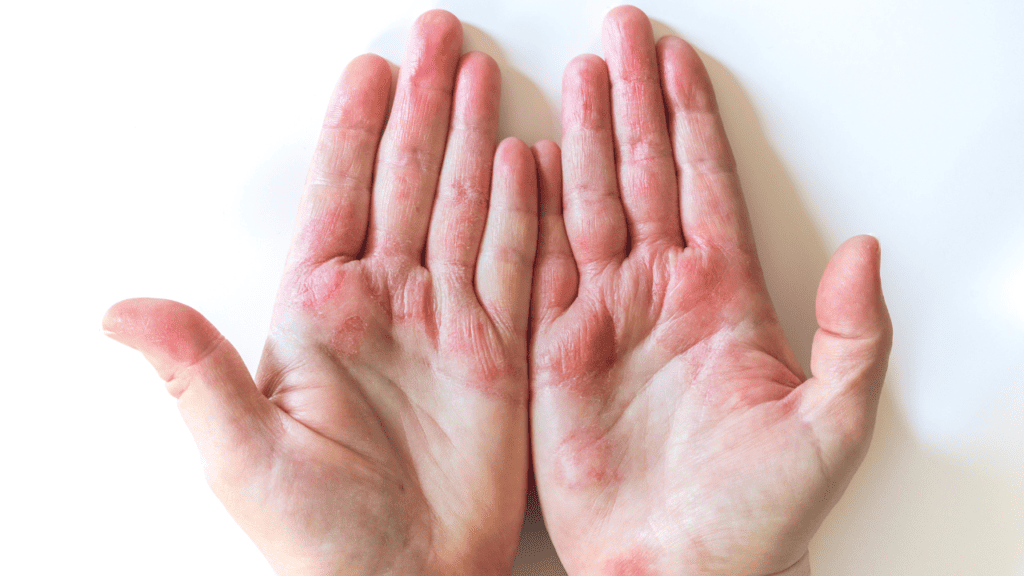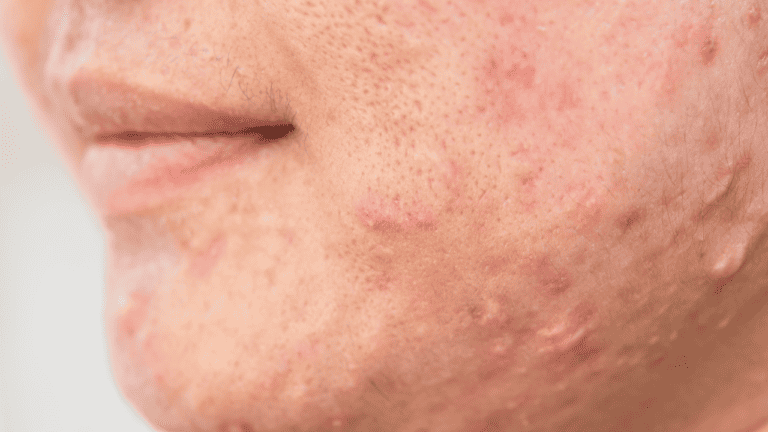Eczema is a chronic skin condition that affects millions of people worldwide. While there is no cure for eczema, there are various treatment options available to manage its symptoms. One such option is skincare, which involves using products and following routines to keep the skin hydrated and healthy. But the question remains, will skincare help eczema?

Understanding Eczema
Before answering this question, it is important to understand what eczema is and how it affects the skin. Eczema is a skin condition that causes the skin to become dry, itchy, and inflamed. It can appear anywhere on the body and can be triggered by a variety of factors, including stress, allergens, and irritants. Eczema is a chronic condition, meaning that it can last for a long time, and there is no cure for it.
The Role of Skincare in Managing Eczema
While there is no cure for eczema, there are various treatment options available to manage its symptoms. One such option is skincare. Skincare involves using products and following routines to keep the skin hydrated and healthy. The goal of skincare in managing eczema is to prevent flare-ups, reduce inflammation, and soothe the skin. Skincare can also help to repair the skin barrier, which is often compromised in people with eczema.
Understanding Eczema

Eczema, also known as atopic dermatitis, is a chronic condition that causes the skin to become red, itchy, and inflamed. It is a common skin condition that affects both children and adults. The exact cause of eczema is unknown, but it is believed to be a combination of genetic and environmental factors.
Causes and Symptoms
Eczema is caused by a combination of genetic and environmental factors. People with eczema have a weakened skin barrier, which makes their skin more susceptible to irritants and allergens. This can lead to inflammation, redness, and itching.
The symptoms of eczema can vary from person to person, but common symptoms include redness, itching, dryness, and flaking of the skin. In severe cases, eczema can cause oozing, crusting, and bleeding of the skin.
Types of Eczema
There are several types of eczema, including atopic dermatitis, contact dermatitis, dyshidrotic eczema, and nummular eczema. Atopic dermatitis is the most common type of eczema and is often seen in children. It is characterized by dry, itchy, and scaly patches of skin.
Contact dermatitis is caused by exposure to an irritant or allergen and is characterized by redness, itching, and sometimes blisters. Dyshidrotic eczema is characterized by small, itchy blisters on the hands and feet. Nummular eczema is characterized by round, coin-shaped patches of irritated skin.
In conclusion, eczema is a chronic skin condition that can cause discomfort and irritation. While the exact cause of eczema is unknown, it is believed to be a combination of genetic and environmental factors. There are several types of eczema, each with its own set of symptoms and triggers. It is important to work with a dermatologist to develop a treatment plan that works best for you.
The Role of Skincare in Managing Eczema

Eczema, also known as atopic dermatitis, is a chronic skin condition that affects millions of people worldwide. While there is no cure for eczema, it can be managed with proper skincare. Skincare plays a vital role in managing eczema, and it is essential to keep the skin moisturized and protected.
Importance of Moisturizing
One of the most important aspects of skincare for eczema is moisturizing. Moisturizing helps to keep the skin hydrated, which is essential for people with eczema. Dry skin can lead to itching, redness, and flaking, which can exacerbate eczema symptoms. Using a moisturizer regularly can help to prevent dryness and lock in moisture, which can soothe the skin and reduce eczema symptoms.
There are many different types of moisturizers available, including creams, ointments, and lotions. Creams and ointments are generally more effective than lotions because they contain more oil, which helps to lock in moisture. It is important to choose a moisturizer that is appropriate for the severity of the eczema and the individual’s skin type. Some moisturizers may contain fragrances or other ingredients that can irritate the skin, so it is essential to read the label carefully before purchasing.
Protecting the Skin Barrier
Another important aspect of skincare for eczema is protecting the skin barrier. The skin barrier is the outermost layer of the skin, and it plays a vital role in protecting the body from external irritants and allergens. People with eczema have a weakened skin barrier, which makes them more susceptible to irritants and allergens.
Using an emollient or moisturizer regularly can help to strengthen the skin barrier and protect it from external irritants. It is also important to avoid using harsh soaps and detergents, which can strip the skin of its natural oils and further weaken the skin barrier. Instead, use gentle, fragrance-free products that are specifically designed for sensitive skin.
In conclusion, skincare plays a crucial role in managing eczema. Moisturizing and protecting the skin barrier are two essential aspects of skincare for eczema. By following a proper skincare routine and using appropriate products, people with eczema can help to soothe their skin and reduce eczema symptoms.
This post may contain affiliate links, which means I’ll receive a commission if you purchase through my link, at no extra cost to you. Please read full disclosure here.
Choosing the Right Skincare Products

When it comes to eczema, choosing the right skincare products is crucial. The wrong products can cause irritation and exacerbate symptoms, while the right products can soothe and moisturize the skin. Here are some tips for choosing the right skincare products for eczema:
Ingredients to Look For
- Ceramides: Ceramides are a type of lipid that help to strengthen the skin barrier. They are often found in moisturizers and can help to keep the skin hydrated and reduce inflammation.
- Glycerin: Glycerin is a humectant that helps to draw moisture into the skin. It is often found in moisturizers and can help to keep the skin hydrated.
- Hyaluronic acid: Hyaluronic acid is another humectant that helps to draw moisture into the skin. It is often found in serums and can help to hydrate the skin and reduce the appearance of fine lines and wrinkles.
- Urea: Urea is a humectant that helps to draw moisture into the skin. It is often found in moisturizers and can help to keep the skin hydrated.
- Petroleum jelly: Petroleum jelly is an occlusive that helps to trap moisture in the skin. It is often found in ointments and can help to soothe and protect the skin.
Ingredients to Avoid
- Fragrances: Fragrances can be irritating to sensitive skin and can cause allergic reactions. Look for fragrance-free products.
- Retinoids and retinol: Retinoids and retinol are often found in anti-aging products, but they can be irritating to sensitive skin and can exacerbate eczema symptoms.
- Lanolin: Lanolin is a common ingredient in moisturizers, but it can be irritating to sensitive skin and can cause allergic reactions.
- Propylene glycol: Propylene glycol is often found in skincare products as a humectant, but it can be irritating to sensitive skin and can cause allergic reactions.
It is important to note that everyone’s skin is different, and what works for one person may not work for another. It is always a good idea to consult with a dermatologist before trying new skincare products, especially if you have sensitive skin or eczema.
Skincare Routines and Practices

Eczema is a chronic condition that causes red, itchy, and inflamed skin. While there is no cure for eczema, a good skincare routine can help manage symptoms and reduce flare-ups. In this section, we will discuss some best practices for skincare routines and bathing practices for people with eczema.
Daily Skincare Routine
A daily skincare routine is essential for people with eczema. The routine should include gentle cleansing, moisturizing, and sun protection. It is important to use gentle products that do not irritate the skin. Harsh soaps and cleansers can strip the skin of its natural oils and aggravate eczema symptoms.
When cleansing the skin, use lukewarm water instead of hot water, which can dry out the skin. A gentle cleanser should be used instead of harsh soaps. After cleansing, pat the skin dry with a soft towel and apply a moisturizer immediately to lock in moisture. A fragrance-free moisturizer is recommended, as fragrances can irritate the skin.
Sun protection is also important for people with eczema. Sun exposure can trigger eczema flare-ups, so it is important to use a broad-spectrum sunscreen with an SPF of 30 or higher. The sunscreen should be applied 15 minutes before going outside and reapplied every two hours.
Bathing and Cleansing Tips
Bathing and cleansing can be tricky for people with eczema, as water can dry out the skin and aggravate symptoms. Here are some tips for bathing and cleansing:
- Use warm water instead of hot water. Hot water can strip the skin of its natural oils and aggravate eczema symptoms.
- Limit baths and showers to 10-15 minutes.
- Use a gentle cleanser instead of harsh soaps. Look for a cleanser that is fragrance-free and designed for sensitive skin.
- Pat the skin dry with a soft towel instead of rubbing it, which can irritate the skin.
- Apply a moisturizer immediately after bathing to lock in moisture.
In summary, a good skincare routine is essential for managing eczema symptoms. The routine should include gentle cleansing, moisturizing, and sun protection. When bathing and cleansing, use warm water and a gentle cleanser, and pat the skin dry with a soft towel. By following these tips, people with eczema can help manage their symptoms and reduce flare-ups.
When to Consult a Dermatologist
While skincare can be helpful in managing eczema, there may be situations where consulting a dermatologist is necessary. Here are some situations where it may be beneficial to seek professional help.
Identifying Eczema Flares
If a person is experiencing frequent eczema flares, despite their efforts in managing their skincare routine, it may be time to consult a dermatologist. A dermatologist can help identify triggers and provide guidance on how to avoid them. They may also recommend prescription-strength medications to help manage symptoms during flares.
Professional Treatments and Medications
If a person’s eczema is severe or not responding to over-the-counter treatments, a dermatologist can provide professional treatments and medications. Corticosteroids and other anti-inflammatory medications may be prescribed to help manage inflammation and itching. In some cases, a dermatologist may recommend light therapy or other advanced treatments to help manage symptoms.
It is important to note that some rashes may not be eczema and may require different treatments. A dermatologist can help identify the cause of the rash and provide appropriate treatment.
Overall, if a person is experiencing persistent itching, rashes, or inflammation despite their efforts in managing their eczema, it may be time to consult a dermatologist. They can provide guidance on how to manage symptoms and recommend appropriate treatments to help manage eczema flares.
Frequently Asked Questions
Can Aquaphor be used as an effective treatment for eczema on the face?
Aquaphor is a popular brand of ointment that is often recommended for dry, cracked, or irritated skin. It can be used as an effective treatment for eczema on the face, as it helps to soothe and moisturize the skin. However, it is important to note that Aquaphor may not be suitable for everyone and it is always best to consult with a dermatologist before using any new products on the face.
What is a recommended skincare routine for someone with both eczema and acne?
For someone with both eczema and acne, it is important to use gentle, non-comedogenic skincare products that will not clog pores or irritate the skin. A recommended skincare routine may include a gentle cleanser, followed by a moisturizer that is specifically formulated for sensitive skin. It is also important to use sunscreen daily to protect the skin from further damage. Additionally, it may be helpful to avoid any skincare products that contain fragrances or other potential irritants.
Is it safe to use Vitamin C serum on eczema-prone skin?
Vitamin C serum is a popular skincare product that has many benefits for the skin, including brightening and evening out skin tone. However, for those with eczema-prone skin, it is important to be cautious when introducing new products into their skincare routine. While Vitamin C serum is generally safe for most people, it may cause irritation or further exacerbate eczema symptoms in some individuals. It is always best to consult with a dermatologist before using any new products on eczema-prone skin.






